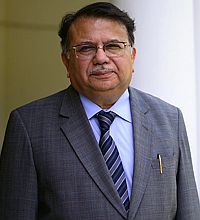Privacy is an important right in a modern and liberal democracy. Does India have a law that safeguards privacy?
Civil Services Main Examination
General Studies (Paper - 2) : Model Question & Answers
 Question:
Even though privacy has been held as a fundamental right, the absence of a law
specifying safeguards to privacy increases the risk of infringement of this
right. Do you think there is a threat to privacy and to what extent can a law
mitigate it?
Question:
Even though privacy has been held as a fundamental right, the absence of a law
specifying safeguards to privacy increases the risk of infringement of this
right. Do you think there is a threat to privacy and to what extent can a law
mitigate it?
Answer: Though the issue of right to privacy being a fundamental right is unsettled, there is no doubt that privacy is an important right in a modern and liberal democracy. While, several government departments collect data under various legislations, India does not have a law that safeguards privacy.
Under Passport Act and Motor Vehicles Act persons have to give details of their address, date of birth etc. There are no safeguards against access and use of this information by third parties. Similarly, initiatives like UID, NeGP, NATGRID, CCTNS etc. require maintenance of information in electronic format by involving several private players. The draft DNA Profiling Bill is also in the pipeline.
Absence of a law on privacy increases the risk to infringement of the right to privacy. The Group of Experts on Privacy, chaired by Shri A. P. Shah has set out the following principles for the Indian privacy law:
-
Technology neutral, i.e. irrespective of storage: digital or physical.
-
Protect all types of privacy, such as bodily privacy (DNA and physical); against surveillance (unauthorised interception, audio and video surveillance); and data protection.
-
Safeguards applicable to both government and private sector.
-
Create office of a ‘Privacy Commissioner’ at central and regional level.
-
Industry to set up Self-Regulating Organisations to develop a baseline legal framework that protects and enforces privacy, to be approved by the Commissioner.
-
Entities collecting and processing data would be accountable, to guarantee privacy of data subject.
Such a law will set a new era of right to privacy for citizens of India. Moreover, it may be the right time to amend the Constitution appropriately to declare right to privacy as a fundamental right, along with limitations to this right.
data-matched-content-ui-type="image_card_stacked"
Useful Tips & Articles
तैयारी कैसे करें? |
EXAM SUBJECTS |
STUDY RESOURCESDownload Free eBooks |


